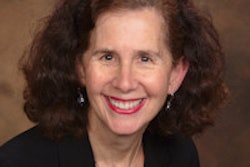
"What is the difference between a transactional practice and a relationship-based practice?"
Not only is this a good question, but actually one of the questions on my interview form for potential team members.
 Sheri B. Doniger, DDS.
Sheri B. Doniger, DDS.A transactional practice is only involved with "getting 'em in and getting 'em out." Well, that may be rather blunt, but the bakery number system comes to mind. When your patients feel more like a number than a person, they may find time to reconsider where they want to spend their dental dollars.
A relationship-based practice is more based on communication. As dental professionals, our practices thrive on the art of listening to our patients' needs for oral care and then communicating back to them the potential treatment plans to accomplish their goals. This is not an easy way to practice. It takes time and a desire to really listen to the patient beyond their dental concerns.
I have known many of my patients since they were very young. Some of these patients are leaving for other parts of the country to start careers after college. I knew about many of the ball games they played, the theater they participated in, and, definitely, the colleges they attended.
“A relationship-based practice is more based on communication.”
As far as my adult patients, I always had a note on something special they did or were doing either before or after our visit. It is fun to comment on an upcoming vacation or gardening techniques. They really are impressed when we remember the same discussion six months later. Of course, sometimes I do take notes, but for the most part, I do recall bits and pieces of our conversation between active treatment times.
Remember, we frequently only see our patients every six months. If you only saw your significant other twice a year, how difficult would it be to create a long-lasting relationship?
We, on the other hand, have to create a relationship of trust with potentially less than an hour of time spent with our patients. It's alright to comment on a new job, a pending vacation, or a movie. Some dentists will bond through sports, others through theater. We bond through cooking and gardening. It doesn't matter. Just talk to your patients about something besides teeth.
Numbers and production are important as the life blood of any practice. But, when you forget about the bodies that are attached to these procedures, that is when the practice suffers. So, get a little chatty. Your team members do (or they should). You may be surprised at the results.
Sheri B. Doniger, DDS, practices clinical dentistry in Lincolnwood, IL. She is currently vice president and president-elect of the American Association of Women Dentists and editor of the American Association of Women Dentists "Chronicle" newsletter. She has served as an educator in several dental and dental hygiene programs, has been a consultant for a major dental benefits company, and has written for several dental publications. You can reach her at [email protected].
The comments and observations expressed herein do not necessarily reflect the opinions of DrBicuspid.com, nor should they be construed as an endorsement or admonishment of any particular idea, vendor, or organization.

















